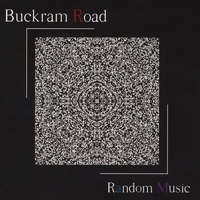
A major issue with consolidation and inter-organization (municipal/business/community/non-profit etc) cooperation is that there is not a technical-organizational “framework” in place that allows for the secure free flow of information and ideas and a set of open/flexible “standards” that all parties agree to use in this communication. Oyster Bay 2000 was an initial attempt to establish a reasonable beginning for a discussion on how to create such a “framework."
One of the keys to success is making sure that it subscribes to an “secure open standard” (one that allows it to easily link or share information with other software applications/open architecture) and that it is “carrier neutral” (http://www.dpsproject.com/neutralcarrier.html). For example, shouldn't all GIS work with all GPS? Shouldn't all data have the possibility of being connected? Shouldn't we have the ability to generate "ad hoc" reports easily and seamlessly to analyze and come to a consensus on public issues?
Many fine reports and studies are issued by the LI Index, LIA, Energeia/Molloy College and dozens of other fine organizations as “static” reports. Unfortunately they have no current way to connect to one another and evolve over time or in virtual real time as new information becomes available. There are many smart individuals in our communities (and beyond) who, if given the opportunity have a lot to add to the public debate.
Obviously everyone can’t connect to everyone all the time for any reason and no one is advocating a “free for all.” But there are ways to increase the communication over time in an organized way (Oyster Bay 2000 was a beginning) that will do more to foster the long term health and prosperity of LI than the continuing parade of “studies" however fine they may be, that end up on a shelf and are at best, the opinion of a limited group, no matter how intelligent they may be, of people at a particular point in time. We need continual interaction and accurate follow-up and standards to determine success.
We must also learn to cooperate in a more civil, professional way and put aside as much of our partisan (political or otherwise) nature as possible. As Long Island continues to mature, resources will become more scarce, and our decisions will have greater impact on how we live our lives. Technology can help, but not without sound analysis based on common information.
Additionally, there is a natural tendency to protect one's "turf" whether it is political, media, education, civic or any of the dozens of categories under which we define ourselves. The key is to allow (even promote) individuality and creativity within a group setting. This way the "social dynamic" is not unreasonably disturbed, interests are not unreasonably threatened but there is a mechanism to work collaboratively.
XML is one method among many that should be used in establishing this open dynamic (real time) framework (in addition to some of the ideas in these links):
http://en.wikipedia.org/wiki/Wiki
http://en.wikipedia.org/wiki/Web_2.0
http://en.wikipedia.org/wiki/Social_networking
http://en.wikipedia.org/wiki/Data_Mining
http://en.wikipedia.org/wiki/GPS
http://en.wikipedia.org/wiki/Geographic_information_system
We will explore the benefits of these ideas, and others, in later posts.
One of the keys to success is making sure that it subscribes to an “secure open standard” (one that allows it to easily link or share information with other software applications/open architecture) and that it is “carrier neutral” (http://www.dpsproject.com/neutralcarrier.html). For example, shouldn't all GIS work with all GPS? Shouldn't all data have the possibility of being connected? Shouldn't we have the ability to generate "ad hoc" reports easily and seamlessly to analyze and come to a consensus on public issues?
Many fine reports and studies are issued by the LI Index, LIA, Energeia/Molloy College and dozens of other fine organizations as “static” reports. Unfortunately they have no current way to connect to one another and evolve over time or in virtual real time as new information becomes available. There are many smart individuals in our communities (and beyond) who, if given the opportunity have a lot to add to the public debate.
Obviously everyone can’t connect to everyone all the time for any reason and no one is advocating a “free for all.” But there are ways to increase the communication over time in an organized way (Oyster Bay 2000 was a beginning) that will do more to foster the long term health and prosperity of LI than the continuing parade of “studies" however fine they may be, that end up on a shelf and are at best, the opinion of a limited group, no matter how intelligent they may be, of people at a particular point in time. We need continual interaction and accurate follow-up and standards to determine success.
We must also learn to cooperate in a more civil, professional way and put aside as much of our partisan (political or otherwise) nature as possible. As Long Island continues to mature, resources will become more scarce, and our decisions will have greater impact on how we live our lives. Technology can help, but not without sound analysis based on common information.
Additionally, there is a natural tendency to protect one's "turf" whether it is political, media, education, civic or any of the dozens of categories under which we define ourselves. The key is to allow (even promote) individuality and creativity within a group setting. This way the "social dynamic" is not unreasonably disturbed, interests are not unreasonably threatened but there is a mechanism to work collaboratively.
XML is one method among many that should be used in establishing this open dynamic (real time) framework (in addition to some of the ideas in these links):
http://en.wikipedia.org/wiki/Wiki
http://en.wikipedia.org/wiki/Web_2.0
http://en.wikipedia.org/wiki/Social_networking
http://en.wikipedia.org/wiki/Data_Mining
http://en.wikipedia.org/wiki/GPS
http://en.wikipedia.org/wiki/Geographic_information_system
We will explore the benefits of these ideas, and others, in later posts.











































No comments:
Post a Comment